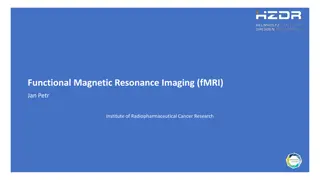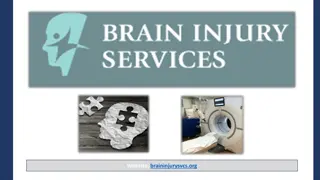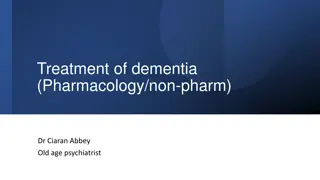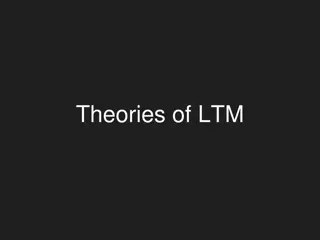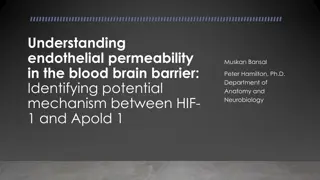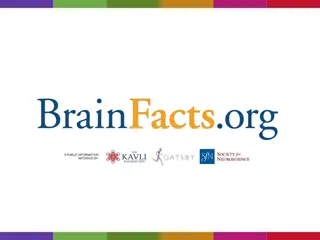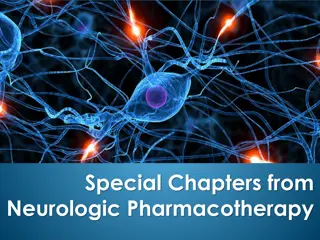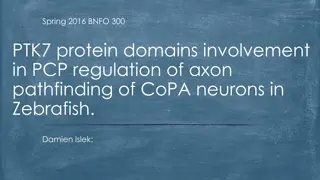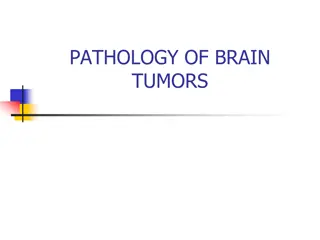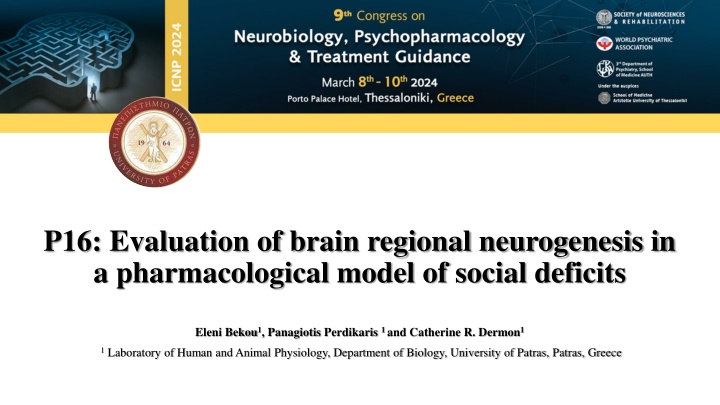
Brain Regional Neurogenesis in Social Deficits Pharmacological Model
This study evaluates brain regional neurogenesis in a pharmacological model of social deficits using adult zebrafish treated with MK-801, a non-competitive NMDA receptor antagonist. The effects on cell proliferation, social behavior, and anxiety profiles are examined, with interesting findings on the reversibility of these effects post-treatment cessation. The implications of decreased neurogenesis on social deficits and anxiety behaviors are discussed alongside the potential for normalization through increased newborn cell density.
Download Presentation

Please find below an Image/Link to download the presentation.
The content on the website is provided AS IS for your information and personal use only. It may not be sold, licensed, or shared on other websites without obtaining consent from the author. If you encounter any issues during the download, it is possible that the publisher has removed the file from their server.
You are allowed to download the files provided on this website for personal or commercial use, subject to the condition that they are used lawfully. All files are the property of their respective owners.
The content on the website is provided AS IS for your information and personal use only. It may not be sold, licensed, or shared on other websites without obtaining consent from the author.
E N D
Presentation Transcript
P16: Evaluation of brain regional neurogenesis in a pharmacological model of social deficits Eleni Bekou1, Panagiotis Perdikaris1 and Catherine R. Dermon1 1Laboratory of Human and Animal Physiology, Department of Biology, University of Patras, Patras, Greece
Introduction Social behavior is crucial for the survival and health of social species, including humans (Holt- Lunstad, 2018). Many neuropsychiatric disorders, such as depression, schizophrenia, and autism spectrum disorders are characterized by social behavior dysfunctions and anxiety disorders (Lowengrub et al., 2015; Spain et al., 2018; Kupferberg and Hasler, 2023). The present study aimed to determine whether brain neurogenesis pattern within regions of the Social Decision-Making affected using a zebrafish model of social deficits and high anxiety. Importantly, SDM network in fish brain is evolutionary conserved. Oregon State University via Flickr under CC BY-SA 2.0 (SDM) network is O'Connell, Hofmann, 2011
MK-801, a non-competitive NMDA receptor antagonist, was used to induce social deficit symptoms and altered excitation/inhibition ratio to adult zebrafish, following 7- day treatment. The fish behavior was assessed using, the Novel Tank Test and the Dark Light behavioral Tests. Following MK-801 treatment, BrdU was applied in zebrafish experimental tanks to determine the mitotically active cells. Zebrafish were allowed to survive for 14-16h (Short Term) or 14days (Long Term). BrdU immunohistochemistry was performed and the density of BrdU+mitotically active cells was quantified by microscopic observation within the dorsal nucleus of the ventral telencephalon (Vd), a region suggested to be homologue to the striatum and the nucleus accumbens, a key area of the social decision-making network. Statistical comparisons were conducted between experimental and control groups. Materials and methods Dark-Light Test (DLT) Novel Tank Test (NTT) Danio-rerio, 3 4 months old
MK-801-treatment significantly decreased cell proliferation rate in Vd, in parallel to social deficits and higher anxiety behavioral profile. Interestingly, this effect was reversed 14 days following the cessation of MK-801 treatment (long survival group), with animals showing reduced levels of anxiety, restoration of social behavior and increased density of newborn cells. Results Novel Tank Test (NTT) Dark-Light Test (DLT)
MK-801-induced decreases in adult zebrafish brain neurogenesis may underlie the transient effects on social deficits and anxiety behavioral profile. In support, behavioral phenotype, following the cessation of NMDA receptor hypofunction, was associated to increased newborn cell together, our results association of adult excitation/inhibition imbalance behavior. the normalization of Discussion density. further neurogenesis Taken support all the to and social

